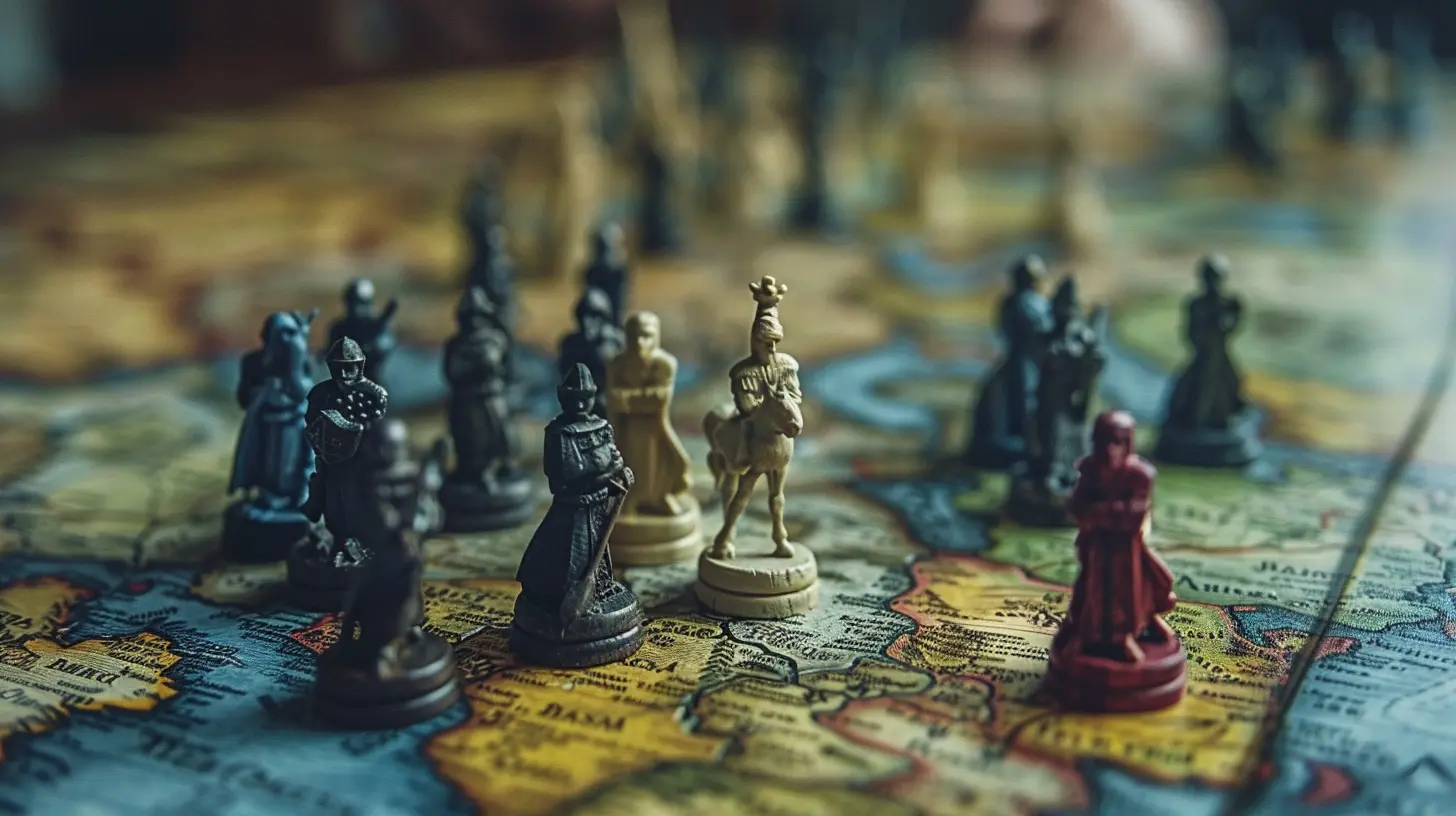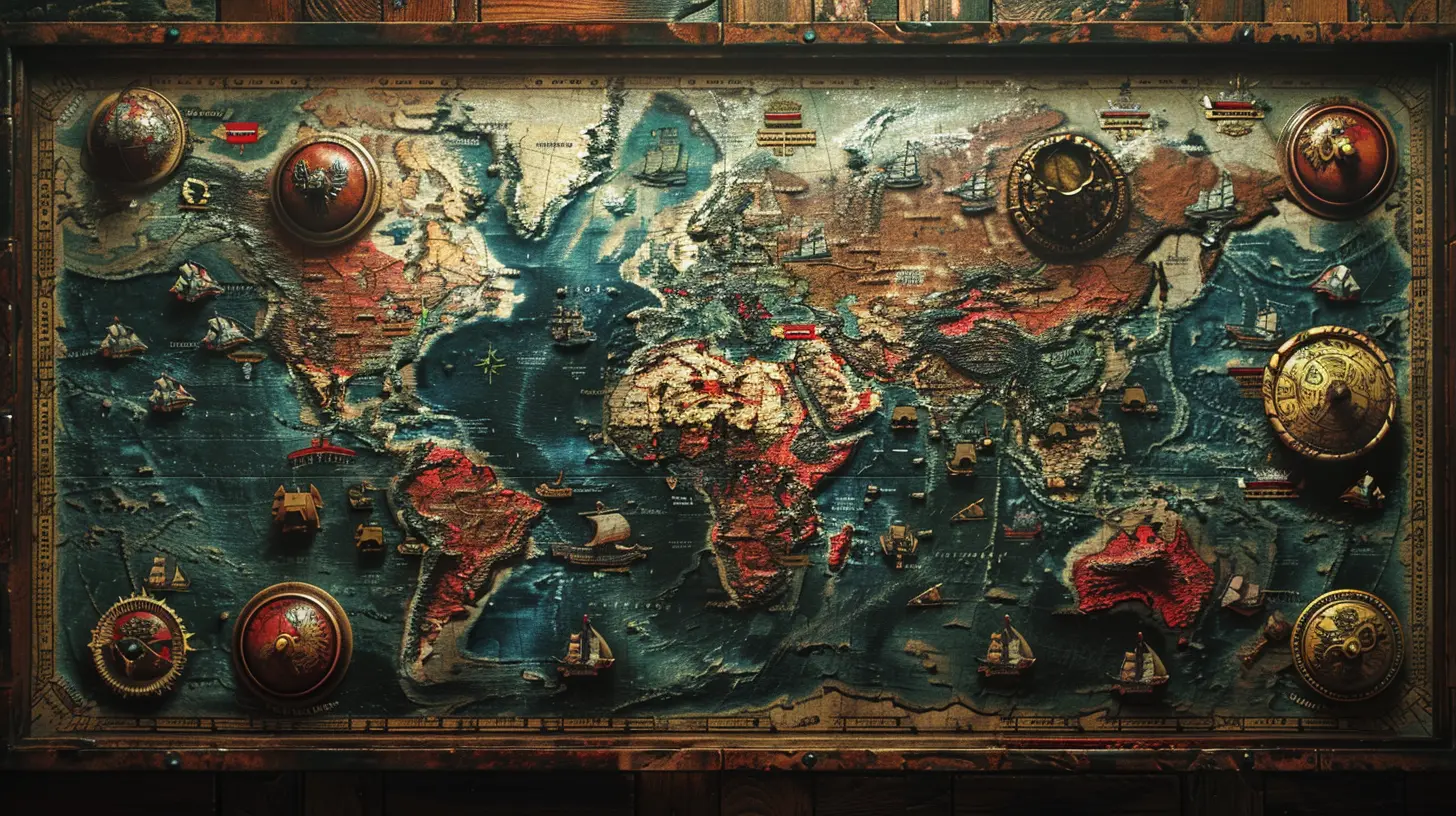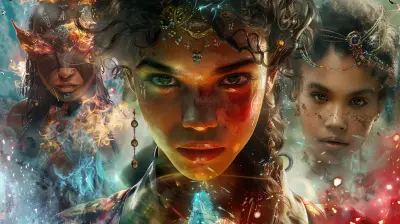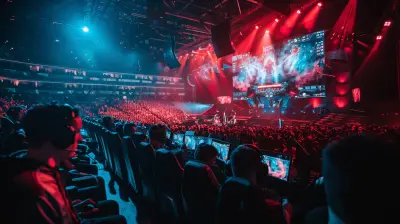How Fantasy Games Balance Combat and Diplomacy
8 July 2025
Fantasy games have this magical way of drawing us into their worlds, don’t they? Whether you're leading an army against an evil sorcerer or negotiating a fragile truce between warring factions, these games do something special—they make you feel like every decision you make matters. But have you ever stopped to wonder how developers strike that delicate balance between intense combat and intricate diplomacy? Finding harmony between these two elements can make or break a fantasy game. Strap in, because we’re about to dive deep into how fantasy games masterfully juggle swords and speeches.
The Dual Nature of Fantasy Games
Let’s face it: most fantasy games thrive on a blend of action-packed combat and complex storytelling. Without combat, the game might feel flat, like a puzzle missing its edge pieces. On the flip side, a game that’s all about fighting without any meaningful diplomacy? That can get repetitive fast. It's like eating a bowl of plain rice and none of the biryani—where's the spice?Fantasy games embrace players with diverse tastes. Some love swinging their swords, casting spells, or raining arrows on their enemies. Others enjoy the thrill of crafting alliances, lying through their teeth, and influencing kingdoms from the shadows. Catering to both types of players means walking a tightrope between these two pillars.
Combat: The Heart of Action
Why Combat Keeps Us Hooked
There’s something undeniably satisfying about combat in fantasy games. It’s fast-paced, thrilling, and often the most immediate way to interact with the game world. When you’re facing a fire-breathing dragon or leading an army into a chaotic battlefield, your heart races. Combat becomes the stage where your decisions, skills, and reflexes collide—literally.But combat isn't just mindless button-mashing (well, in good games, at least). There's strategy involved. Do you go in guns blazing (or swords swinging), or do you try a stealthier approach? These decisions keep players engaged, transforming battles from mere action sequences to chess matches with swords.
Types of Combat in Fantasy Games
Fantasy games often deliver a smorgasbord of combat styles to suit different players:- Turn-Based Combat: Games like XCOM or the Final Fantasy franchise excel here. These battles feel like grand strategy sessions, where each move can be the difference between victory and defeat.
- Real-Time Combat: Think The Witcher or Elden Ring. Real-time combat is dynamic and relentless, constantly keeping you on your toes.
- Tactical Combat: Titles like Divinity: Original Sin 2 shine in tactical combat, letting players manipulate environments creatively.
The variety within combat systems ensures that they don’t feel repetitive. Instead, every encounter feels fresh and challenging.
Diplomacy: The Silent Weapon
Why Diplomacy Is Just As Thrilling
Combat gets all the flashy trailers, but diplomacy? That’s where the real magic happens. It’s where you manipulate the story, forge (or destroy) relationships, and carve out your mark on the game world. With diplomacy, you're not just reacting to the environment—you’re shaping it, like a potter molding clay.What’s more engaging than a game that lets you broker peace one moment and incite rebellion the next? Diplomacy thrives on choices, and every decision you make ripples out into the game world. Decided to lie to the king and ally with a traitorous faction? Now you’ve got two kingdoms hunting you down. Fun, right?
Core Components of Diplomacy in Fantasy Games
Diplomacy isn’t just sitting at a table and talking—although that can be part of it. Games breathe life into diplomacy through:1. Dialogue Systems: Classic RPGs like Mass Effect and The Elder Scrolls series empower players with branching dialogue trees. Your choices determine alliances, betrayals, and sometimes even who lives or dies.
2. Faction Alliances: Games often present various factions, each with their own agendas (Dragon Age, anyone?). Aligning with one faction can open (or close) doors to resources, companions, or storylines.
3. Resource Management: Diplomacy and economy go hand-in-hand. Games like Civilization or Total War weave resource management into their diplomatic systems, forcing players to think pragmatically about their negotiations.
4. Morality Systems: Your choices often tie into morality systems—are you the selfless hero or the ruthless tyrant? Games like The Witcher 3 and Fable make your moral (or immoral) decisions matter.
Merging Combat and Diplomacy: The Sweet Spot
Why Balance Is Key
Here’s the thing: combat and diplomacy don’t exist in isolation. The best fantasy games weave them together seamlessly. Without diplomacy, combat often lacks depth—why are you even fighting? Without combat, diplomacy can feel toothless—where’s the tension if there’s no risk of war?Think of games like The Witcher 3. Geralt isn’t just hacking and slashing his way through the world; he’s also navigating a treacherous web of politics, allegiances, and personal relationships. Your choices in diplomacy often influence who fights alongside you—or against you.
Examples of Perfectly Balanced Games
1. Dragon Age: OriginsThis game is the gold standard for balancing combat and diplomacy. You’re not just fighting monsters; you’re also rallying allies, making tough moral choices, and deciding the fate of entire nations.
2. Mass Effect Series
Bioware nailed the art of merging thrilling combat with diplomacy. Your choices in dialogue directly influence the outcome of battles, alliances, and the fate of the galaxy.
3. Civilization VI
While it leans more toward strategy, Civilization VI is another great example. You’ll often find yourself torn between negotiating peace with a rival nation or building an army to conquer them.
The Challenges of Balancing Both
Let’s be real—balancing combat and diplomacy isn’t easy. The biggest challenge? Appealing to everyone. People who love diplomacy might feel frustrated if the game leans too heavily into combat, and vice versa. It’s a balancing act, like riding a unicycle while juggling flaming swords.Another challenge is pacing. Too much diplomacy in one stretch can feel like a slog, while back-to-back combat can become exhausting. Good games know when to switch gears, giving players just enough breathing room between battles and negotiations.
Why We Love the Balance
Why does the balance between combat and diplomacy resonate so deeply with gamers? It’s all about immersion. When you’re forced to navigate both the battlefield and the council chambers, the world feels alive. You’re not just a pawn in someone else’s story—you’re the architect of the world’s fate.Plus, it mirrors real life in a way. Think about it: most conflicts aren’t solved purely through brute force or smooth talk. They’re a messy combination of both. And fantasy games let us step into that gray area and experiment with how we’d handle it.
Final Thoughts
So, how do fantasy games balance combat and diplomacy? It’s like making the perfect cup of coffee—each element adds something essential. Combat gives us the adrenaline rush, while diplomacy delivers the emotional depth. Together, they create an experience that feels complete, exciting, and deeply personal.Whether you’re charging into battle or navigating treacherous intrigue, the best fantasy games make sure that every player finds their moment to shine. And honestly? That’s what keeps us coming back for more, every single time.
all images in this post were generated using AI tools
Category:
Fantasy GamesAuthor:

Lucy Ross
Discussion
rate this article
2 comments
Ryan Wilkerson
This article brilliantly highlights the intricate dance between combat and diplomacy in fantasy games. Balancing these elements adds depth and strategy, enriching player experiences. A well-crafted blend can lead to memorable narratives and satisfying gameplay, showcasing the versatility and creativity inherent in this genre. Great read!
December 9, 2025 at 3:31 AM

Lucy Ross
Thank you for your thoughtful comment! I'm glad you enjoyed the exploration of combat and diplomacy in fantasy games. Your insights on their balance enriching player experiences are much appreciated!
Lexi McFarlin
Great read! Balancing combat and diplomacy truly makes fantasy games more immersive and engaging.
July 9, 2025 at 4:07 PM

Lucy Ross
Thank you! I'm glad you enjoyed it. Balancing both elements really enhances the depth of the gaming experience!


